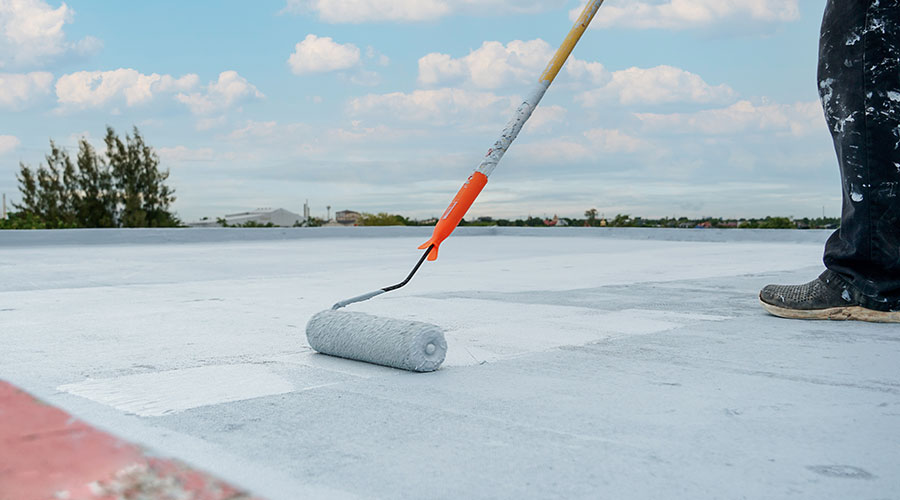Replacing, Re-covering Roof Are Both Valid Options, But Know What Code Requires
Once you have found that you really do need to reroof, you have another decision to make. There are two ways to proceed — re-covering the roof or tearing it off and replacing it. Be aware that code may mandate a tear-off and replacement. Most codes require that a roof be torn off if there are two roof systems already in place unless a structural engineer will certify that the deck can carry the extra load. Also, for safety reasons, decks that corrode, disintegrate, or rot require a tear off if there is any doubt about the deck condition. It is also possible that your insurance carrier may require replacement.
Re-covering is installing a new roof system without removing the existing one. Re-covering has some definite advantages. For one thing, you save the cost and mess of tear-off. This is a special advantage for buildings with limited access for trash removal. What's more, the building does not get exposed to the weather during reroofing. This is a large consideration for buildings that are absolutely critical to be dry at all times. Another benefit is that you contribute less debris to the landfill. Finally, you can add new insulation to the existing insulation and increase your roof's R-value.
But there are also some disadvantages. With a re-cover, you won't know the condition of the deck below the roof and whether or not it is in safe condition. You still need to tear out any wet roofing as wet materials will contribute to premature failure of the new roof.
Another issue to be aware of is that adding height to the roof elevation may interfere with overflow scupper drainage, or be higher than door thresholds or wall flashings, causing leakage that you didn't have before. The new roof has to be very carefully designed to be sure that the drainage and flashing heights are not compromised by the new roof.
You should also keep in mind that maximum warranty periods for re-cover roofs are generally less than what is available for tear-offs because manufacturers know that a re-cover will generally not last as long as a tear-off and replacement. And your choice of roof system may be limited by the weight-carrying capacity of your structural deck or by the material used in the existing roof.
A moisture survey is an absolute requirement before you consider a re-cover system. If you were thinking about a coating, did the moisture survey and found that the roof is more than 25 percent wet, skip immediately to replacement. If your roof is more than about 25 percent wet, you have reached the point of diminishing returns, where the cost of taking out the wet areas and patching in new dry materials wipes out the economic advantage of the re-cover. Since you can get a better roof with a tear off and replacement, why chance a re-cover?
Related Topics:














